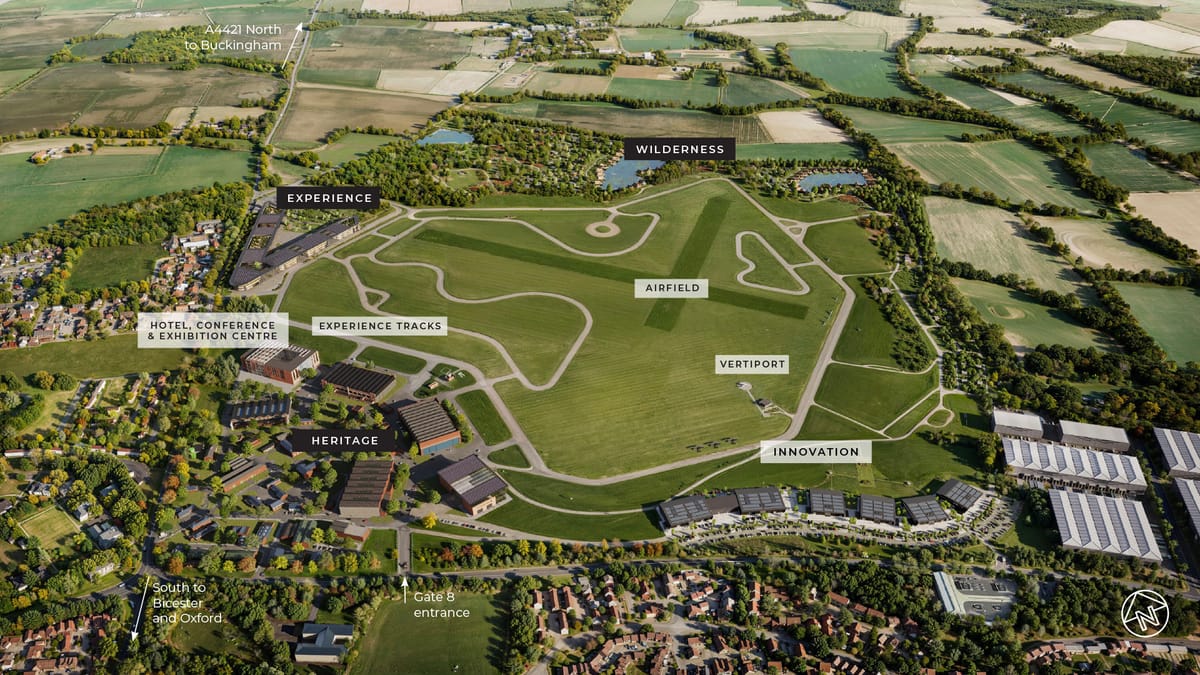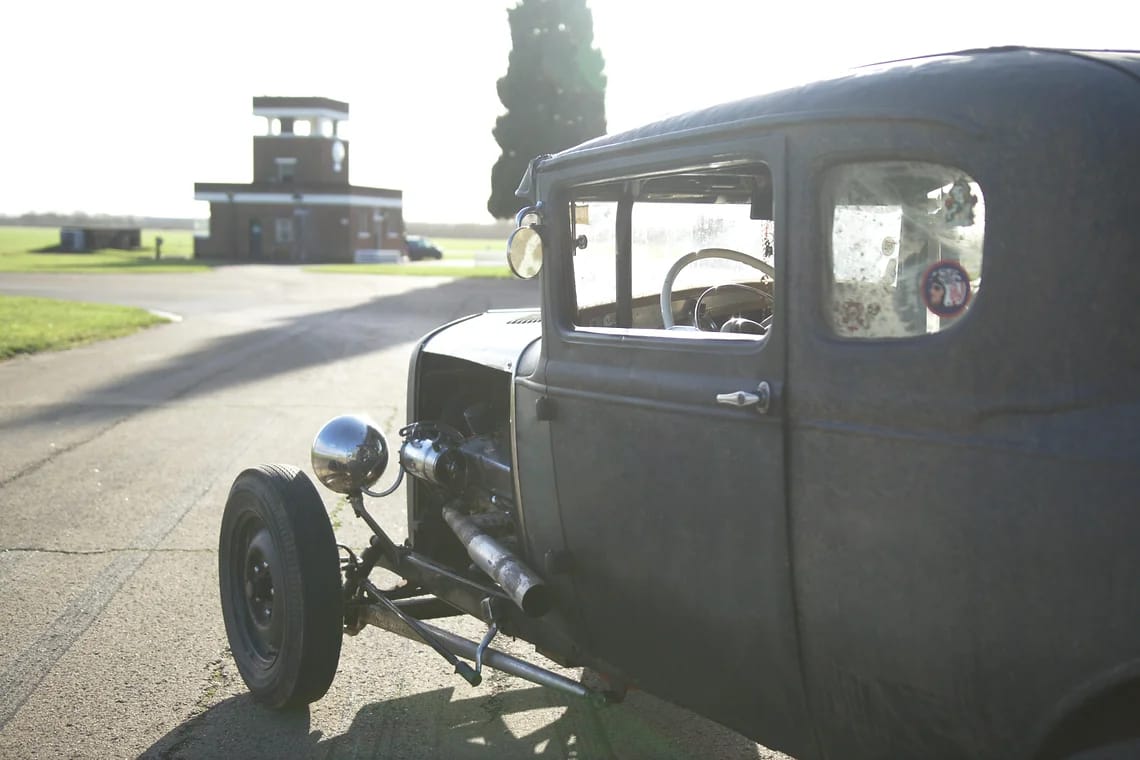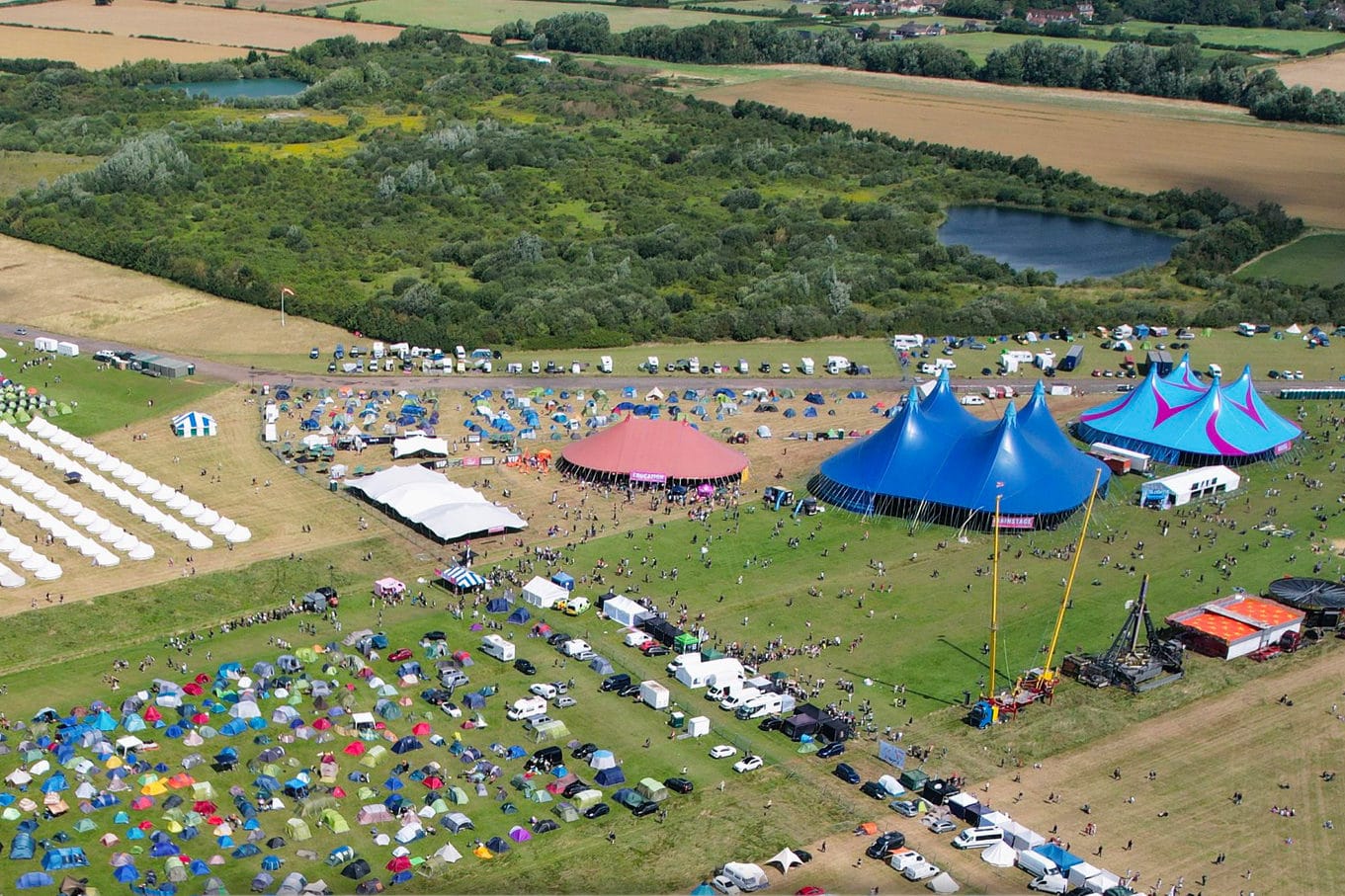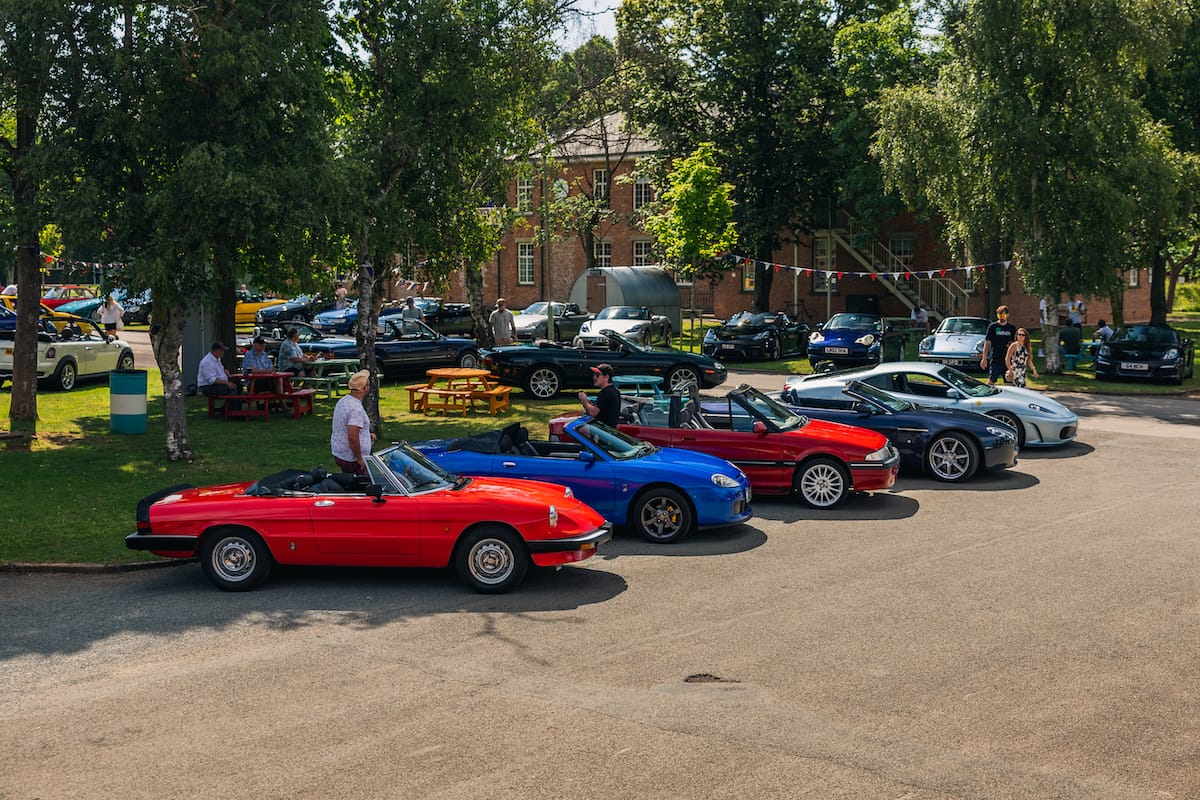The airfield where flying taxis rub shoulders with pre-war Rolls Royces

A vegan festival, flying taxis, and vintage Rolls Royces converted to electric may seem like strange bedfellows, but these and more are taking shape on a converted airfield on the edge of Bicester.
The site of RAF Bicester has been home to heritage vehicle preservation since 2013, but now it has an eye on the future. This part of Oxfordshire has a long association with automotive technology – it’s sometimes known as Motorsport Valley – and now a cluster of engineers at this former WW2 RAF Bomber Training Station are giving it a more innovative slant.
Once on Historic England's 'At Risk' register, the airbase has been reconfigured to house its new inhabitants. Historic England say
RAF Bicester is the best preserved of the bomber bases constructed as the principal arm of Sir Hugh Trenchard's expansion of the RAF from 1923, which was based on the philosophy of offensive deterrence. It retains, better than any other military airbase in Britain, the layout and fabric relating to both the pre-1930's military aviation and the development of Britain's strategic bomber force in the period up to 1939.
For now, the airbase is best known for a unique collection of businesses caring for heritage vehicles. Artisan coach builders, upholsterers, specialist vintage engine oils (founded by the drummer of Pop Will Eat Itself) and radiator restorers – and the Heritage Skills Academy to ensure these skills are handed down. Regular events such as the Scramblers series celebrate vehicles in all their glory, from the vintage to the modern and everything in between. A Tiger Moth will even fly you over the site to see it as the pilots of old would have done.
These oil and petrol businesses have become the “Heritage Quarter” of what is now marketed as Bicester Motion. But the owners of the 444-acre site have ambitions far beyond keeping old vehicles going, extending into designing the vehicles of the future. Their marketing spiel puts it this way:
In a time when mobility will make or break our planet, we believe a sustainable mobility future is the key to unlocking future human progress and we imagine a world where we can all move without impact. This is why we are pioneering a world-leading community of mobility businesses.
And perhaps the distance between old and new is less far than we might think. New technologies often surface first in small-run products and enthusiast vehicles – and several of those are under development at Bicester Motion.
Do you want an e-motorbike? Look at Zapp. Do you dream of flying but zero carbon? Enter Zero Petroleum, a lab developing “clean and carbon neutral” specialist zero-carbon aviation fuels, backed by Boeing, Rolls Royce and the RAF. Perhaps (and we admit this is a stretch for most, if not all of our readers) you have a vintage Rolls Royce that you wish to convert to becoming an EV? Look at Electrogenic. All these have their home at this airfield from which the RAF once defended the skies of Britain.
Flying taxis
In August this year, planning permission was given for the UK's first vertiport testbed for the electric air taxi industry, operated by Skyports Infrastructure. The VX4 is is an electric plane that takes off and lands vertically. It is designed to be piloted, carry four passengers and have a range of up to 100 miles.
Bicester Motion is set to be its final testing ground ahead of commercial launch. It will include a 160 sq m passenger terminal to test ground infrastructure and flight operations. If electric aviation is to play a part in the future of transport, Bicester will have a significant role in it.
Electric drive technology
In 2026, Yasa, a subsidiary of the Mercedes Benz group, will move its UK HQ and much of its 400 strong workforce to the site. Yasa is pioneering new electric drive technology and is a spin off from Oxford University. They claim their axial flux technology motors are up to four times more powerful than those used in nearly all Electric Vehicles on the road today, whilst being around 50% smaller & lighter. CTO and founder of Yasa Dr Tim Woolmer expands:
“I was five weeks into my PhD at Oxford University, when I suddenly realised there was a much better way to build an electric machine called a torus axial flux motor. The insight I had was that by removing the motor's stator yoke, and splitting it into segments, we could reduce the motor's weight – and yet at the same time improve its torque, power density, efficiency and manufacturability, making it potentially transformative within the then nascent electrification industry."
Yasa motors have already been incorporated into Ferraris, and the manufacturer has also worked with Jaguar and Koenigsegg super premium vehicles.
E-go karting
Perhaps the future of motorsport isn't about the roar of the engines and the smell of burning fuel? Last month a £6m investment in a new indoor electric go-karting centre was announced. The proposed two-level track will be built inside a 2,880 sq m, Grade II-listed converted aircraft hangar.
Go-karting is seen as an entry point into motorsport, with the karting provider TeamSport delivering the British Indoor Karting Championships – the largest motorsport championship in the world. There are more than 5,500 annual participants in the BIKC, making their racing leagues an affordable route into the sport. TeamSport also runs the Formula 1 academy Discover Your Drive, which focuses on growing female participation in karting for 8-12 year old girls. Could the next Lewis Hamilton be racing round the e-kart track at Bicester in a couple of years’ time?
Public events
Most of this takes place behind closed doors, but you can take a look around parts of the centre at the events it stages, such as the hugely popular, and apparently already sold out for October 'Scramble' series. They also include festivals like the Vegan Camp Out, and Throttle, a track meet for vintage hotrods. There are Airbnb style ‘crew rooms’ in the former power generation and pump house, and a hotel is planned for the future.



Events at Bicester Motion. from l-r 'Throttle', Vegan Camp Out and 'The Euros Assembly' (credit Bicester Motion)
Daniel Geoghegan, chief executive at Bicester Motion said:
We are pioneering a world-leading community of mobility businesses and providing an inspirational home of heritage, natural beauty and innovation at Bicester Motion. Our community is fast accelerating, and we are proud to be welcoming future companies such as Mercedes-Benz owned YASA for their new UK HQ, Skyports for the new vertiport testbed and TeamSport for our proposed new e-karting centre.
Innovation in electric transport is not limited to Bicester. Long-established Banbury motorsport business Prodrive is now selling super-light folding electric bikes. Kidlington’s WAE Technologies produces batteries for electric HGVs. EAV’s e-cargo bikes, which you may have seen on the streets of Oxford, are built in Heyford Park; they recently featured in this profile in the Financial Times.
Inevitably, in a fast-moving area where the return on R&D is never certain, there have been failures too. Electric van company Arrival closed their North Oxfordshire facilities in 2022 before entering administration, while Bicester’s Saietta went into administration in March.
But perhaps most significant for Oxfordshire’s economy is that the North Oxfordshire e-mobility cluster is rapidly becoming a third string to the county’s bow, after Oxford’s own knowledge businesses and the Science Vale of Abingdon and Didcot. Spreading economic development across the county, rather than clustering it all in Oxford, relieves pressure on the roads and railways heading into the city. And even if you are stuck in a jam every morning, at least you’ll be stuck in a car designed in Oxfordshire.
Want to find out more about electric vehicles? Blenheim Palace is hosting an EV show in September, and there is an ebike summit in Oxford in the same month. Next week in the Clarion we’ll be taking a look at EV charging and the city’s role in pushing forward technology.
